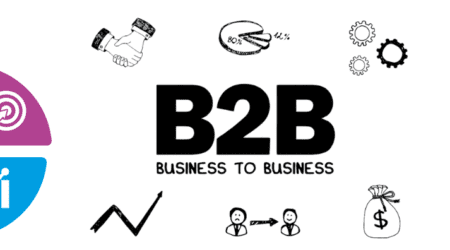Link Building for SEO: The Beginner’s Guide.
What Is link-building
Link building is a fundamental aspect of search engine optimization (SEO) that involves acquiring hyperlinks from other websites to your own.
These links are like votes of confidence from other sites, indicating that your content is valuable and trustworthy. In the eyes of search engines like Google, the number and quality of links pointing to your site are strong ranking factors.
Link building is not just about increasing the number of backlinks to your site; it’s also about obtaining links from authoritative and relevant websites. Quality over quantity is key here. Google’s algorithm has become increasingly sophisticated in determining the value of links, so it’s crucial to focus on building high-quality links that have a genuine impact on your SEO efforts.
The Basics Of Link-Building
Before diving into the strategies and techniques of link building, it’s important to understand the basic concepts. There are two types of links: internal and external. Internal links connect different pages within your website, while external links point from other websites to yours.
Internal links are important for establishing a hierarchical structure within your site and guiding visitors to relevant content. They also help search engines understand the architecture of your website and how different pages are connected.
External links, or backlinks, are the focus of link building for SEO. These links act as votes of confidence and credibility from other websites. The more high-quality backlinks you have, your site will likely rank higher in search engine results pages (SERPs).
How To Build Links
Now that you have a basic understanding of link building, let’s explore some effective strategies for building quality backlinks.
- Content creation and promotion: Creating valuable and shareable content is one of the most effective ways to attract backlinks naturally. When you produce high-quality content that provides useful information or solves a problem, other websites are more likely to link to it. Promoting your content through social media, email outreach, and guest blogging can also help amplify its reach and increase the chances of acquiring backlinks.
- Guest blogging: Writing and contributing articles to other authoritative websites in your industry is a mutually beneficial way to build backlinks. By providing valuable content to these sites, you can establish yourself as an expert and gain exposure to a new audience. In return, you can include a link back to your website within your author bio or within the body of the article itself.
3. Outreach and relationship building: Actively reaching out to other website owners, bloggers, and influencers in your industry can lead to valuable backlink opportunities. Building relationships with relevant people in your niche can open doors for guest blogging, collaborative content creation, and natural link placements. Personalized outreach emails that demonstrate your knowledge and value can significantly increase your chances of securing backlinks.
Which Links Move The Needle?
Not all backlinks are created equal. Some links carry more weight and influence in terms of SEO than others. Here are the types of links that can move the needle and positively impact your search engine rankings:
- Editorial links: Natural links earned through high-quality content and genuine promotion. When other websites link to your content because they find it valuable and relevant, it signals to search engines that your site is trustworthy and authoritative.
- Contextual links: Contextual links are embedded within the body of a web page’s content and are surrounded by relevant text. These links carry more weight than links in footers, sidebars, or author bios. Search engines consider contextual links as more natural and indicative of the content’s relevance.
3. Authority links: Backlinks from authoritative websites that are recognized as leaders in your industry carry significant weight. These links indicate to search engines that your site is worthy of attention and can boost your own site’s authority and rankings.
Best Link-Building Strategies
Now that you understand the importance of link-building and the types of links that matter, let’s explore some of the best link-building strategies you can implement:
- Broken link building: This strategy involves finding broken links on other websites and reaching out to webmasters to suggest replacing them with links to your relevant content. It’s a win-win situation as you help them fix their broken links while gaining a valuable backlink.
- Skyscraper technique: The skyscraper technique involves identifying popular content in your industry and creating an even better version of it. Once you have produced your superior content, you can reach out to websites that link to the original content and offer your improved version as a replacement.
- Resource page link building: Many websites have resource pages that list helpful links and tools related to a specific topic. By identifying relevant resource pages and reaching out to the webmasters, you can suggest adding your content or website as a valuable resource. If accepted, you can gain a high-quality backlink from an authoritative page.
In conclusion,
link building is an essential aspect of SEO that can significantly impact your website’s visibility and rankings in search engine results. By understanding the basics of link building, implementing effective strategies, and focusing on high-quality backlinks, you can improve your website’s authority and increase organic traffic. Remember, link building is a long-term and ongoing process, so be patient, and persistent, and always prioritize quality over quantity.
Are you ready to take your SEO efforts to the next level?
Contact our digital marketing agency today and let our experts help you build a strong link profile for improved rankings and organic traffic.












